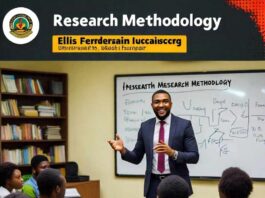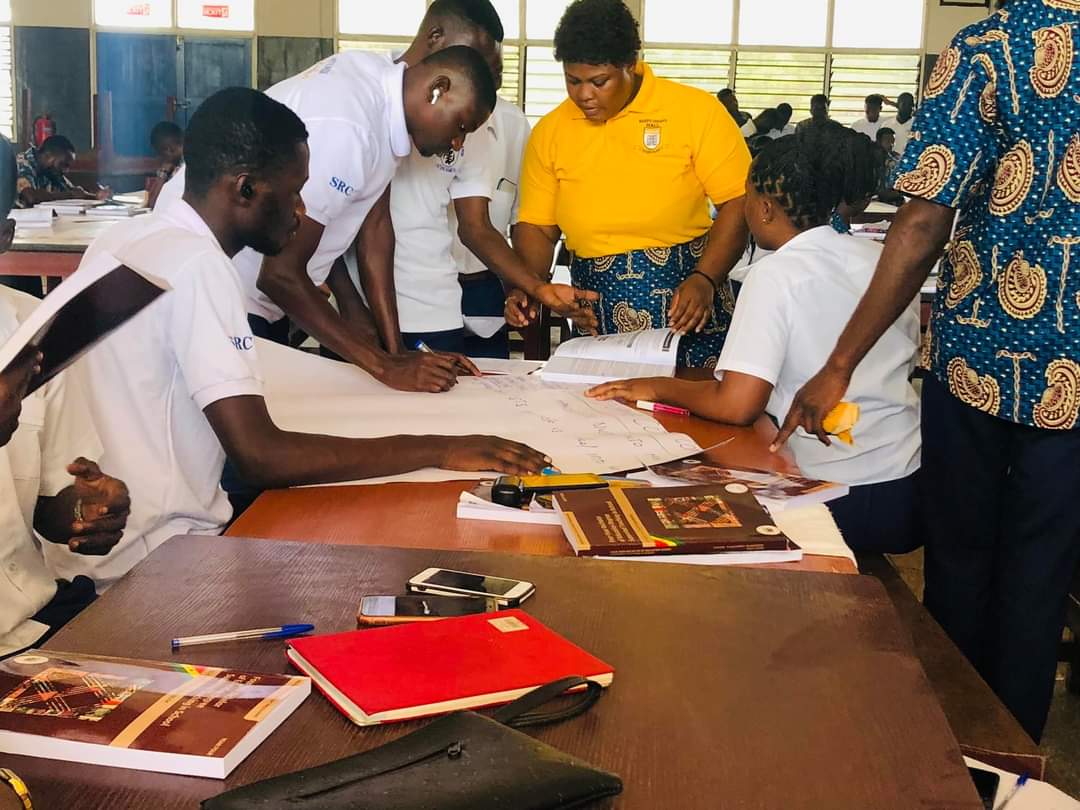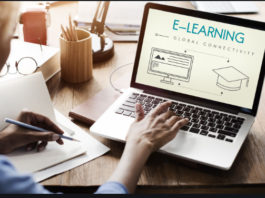Ferdinand | EducationGhana | March 12 | Simple Steps in writing a Research Abstract with Examples in 2025
Writing a research abstract is essential for summarizing your study’s key points concisely. Here’s a guide on how to write one, along with examples:
- Introduction:
- Start with a clear statement of the research problem or question.
- Provide context for the study, including its significance and relevance.
Example: “This study investigates the impact of social media usage on adolescent mental health, aiming to address gaps in understanding the relationship between online activities and psychological well-being among youth.”
- Methods:
- Briefly outline the research design, methodology, and data collection procedures.
- Include information about the participants, materials used, and data analysis methods.
Example: “A mixed-methods approach was employed, consisting of quantitative surveys and qualitative interviews. Participants were recruited from local high schools, and data were collected through online questionnaires and in-person interviews. Quantitative data were analyzed using descriptive statistics, while qualitative data were subjected to thematic analysis.”
- Results:
- Summarize the main findings of your study.
- Highlight key results and significant findings that address the research question.
Example: “The study found a significant positive correlation between social media usage and symptoms of anxiety and depression among adolescents. Qualitative analysis revealed themes of social comparison, cyberbullying, and fear of missing out as prominent factors contributing to negative mental health outcomes.”
Simple Steps to Develop a Research Question in 2024
Understand These Key Terminologies when conducting subjectivist research (Qualitative) in 2024
40 Fully Funded UCL Research Excellence Scholarships (RES), United Kingdom in 2024
Why Some Student Research Works Don’t Make the Cut at Universities
Top Research Papers to Support Your PhDs in 2023
- Discussion:
- Interpret the results and discuss their implications.
- Relate your findings back to the research question and broader literature.
Example: “These findings underscore the importance of addressing the psychological impacts of excessive social media use among adolescents. Strategies for promoting healthy online behaviors and providing support for youth navigating digital environments are crucial in mitigating the negative effects identified in this study.”
- Conclusion:
- Sum up the main points of your research and highlight its contributions.
- Provide recommendations for future research or practical implications.
Example: “In conclusion, this study contributes to our understanding of the complex relationship between social media and adolescent mental health. Future research should explore interventions aimed at promoting digital well-being and fostering resilience among young people in an increasingly interconnected world.”
- Formatting and Length:
- Keep the abstract concise, typically between 150 to 300 words.
- Use clear and precise language, avoiding unnecessary jargon.
- Follow any specific formatting guidelines provided by the target journal or conference.
Example Abstract: “This study investigates the impact of social media usage on adolescent mental health using a mixed-methods approach. Quantitative surveys and qualitative interviews were conducted with high school students to explore the relationship between online activities and psychological well-being. Results revealed a significant positive correlation between social media usage and symptoms of anxiety and depression among adolescents. Qualitative analysis identified themes of social comparison, cyberbullying, and fear of missing out as contributing factors. These findings highlight the importance of promoting healthy online behaviors and providing support for youth navigating digital environments. Future research should focus on developing interventions to promote digital well-being and resilience among adolescents.”
Scheme of Works
- Term 2 JHS 1 TO 3 Sample Weekly Scheme of Learning >> Download
- JHS 1 Social Studies Termly and Weekly Scheme of Learning >>>> Download
- JHS 1 Computing Termly and Weekly Scheme of Learning >> Download
- JHS 1 Science Termly and Weekly Scheme of Learning >>>> Download
- JHS 1 Ghanaian Language Termly and Weekly SoL > Download
- JHS 1 Career Technology Termly and Weekly Scheme of Learning > Download
- JHS 1 Mathematics Termly and Weekly Scheme of Learning > Download
- JHS 1 English Language Termly and Weekly Scheme of Learning > Download
- JHS 1 French Termly and Weekly Scheme of Learning > Download
-
Term 2: Nursery, KG to Basic 6 Weekly Scheme of Learning Download
- JHS 3 Second Term Scheme of Learning Download
- JHS 2 Second Term Scheme of Learning Download
Updates on Research Works
-
Simple Steps to Develop a Research Question in 2024
Understand These Key Terminologies when conducting subjectivist research (Qualitative) in 2024
40 Fully Funded UCL Research Excellence Scholarships (RES), United Kingdom in 2024
Why Some Student Research Works Don’t Make the Cut at Universities
Top Research Papers to Support Your PhDs in 2023
GTLE Past Questions
GTLE Literacy Practice Test -Part 2
GTLE Literacy Practice Test -Part 1
GTLE Numeracy Practice Test -Part 3
GTLE Numeracy Practice Test -Part 2
GTLE Numeracy Practice Test -Part 1
GTLE 2018 Solved Numeracy Questions -Part 3
GTLE 2018 Solved Numeracy Questions Hand Written -Part 2
Discover more from EducationGhana
Subscribe to get the latest posts sent to your email.










